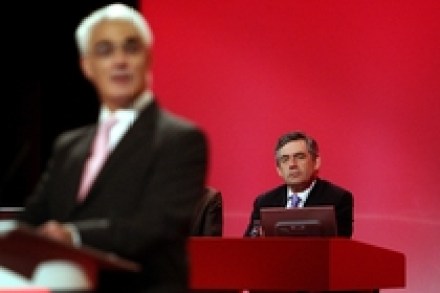The spectator’s notes
Gordon Brown sat next to poor, trembling Alistair Darling on the government front bench on Tuesday for the Chancellor’s statement on the loss of 25 million people’s personal details. He had failed to do the same the day before, when Mr Darling made a statement about Northern Rock. The contrast between his absence one day and his presence the next emphasised the scale of the disaster on Tuesday. Despite his protestations when he came into office, Mr Brown has little respect for the Commons, or for Cabinet government. He is very keen on power, but not very good at leadership. In our system, the Prime Minister shouldn’t aspire to run
















